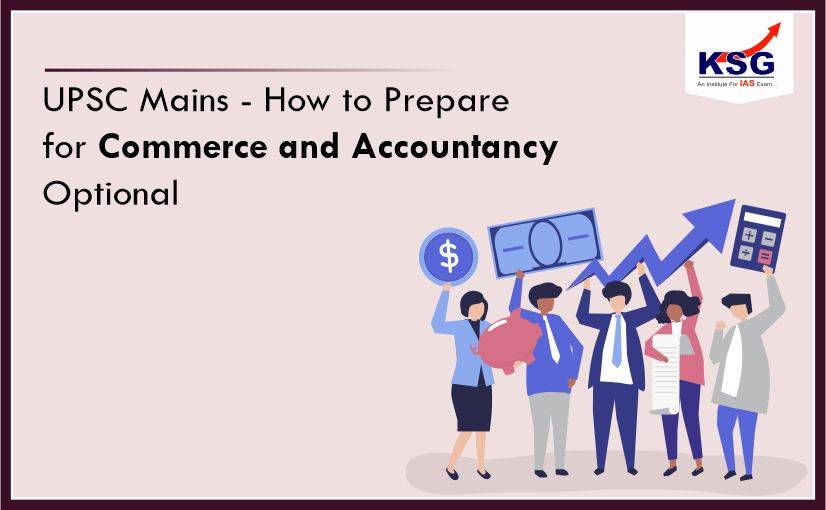UPSC Mains - How to Prepare for Commerce and Accountancy Optional
The UPSC examination date has already been announced and if you are gearing up to reach your goal of clearing UPSC examination, then you must have gone through the UPSC syllabus. You must have noticed that the commerce and accountancy subject is available as optional and if you have only already studied it and you possess the basic knowledge of it, and then only go for it.
UPSC Mains - How to Prepare for Commerce and Accountancy Optional
The UPSC examination date has already been announced and if you are gearing up to reach your goal of clearing UPSC examination, then you must have gone through the UPSC syllabus. You must have noticed that the commerce and accountancy subject is available as optional and if you have only already studied it and you possess the basic knowledge of it, and then only go for it. Because it is a technical subject and it would be beneficial to take this one as optional to those who have prior knowledge about it.
So, here are some strategies to let you know what should be your preparation technique for commerce and accountancy optional that would help you to score high.
First know, why?
There are numerous optional subject options and why are you suggested to take commerce and accountancy if you have prior knowledge about it? It is because commerce is a very scoring subject if you practice it adequately. If you attend around 150 marks numerical problems and solve them correctly, it would help a lot to elevate your marks and ranking as well.
Know your syllabus:
The first tip to cope up with the UPSC commerce and accountancy optional paper is to go through the syllabus sincerely and to know every bit of it. The paper is divided into two parts:
Paper I:
- Financial Accounting
- Cost Accounting
- Financial Management etc.
Paper-II:
- This part is mainly theoretical.
Best reference books:
Best reference books make your journey to your destination even easier. So, always follow books recommended by toppers or experts to score higher in commerce and accounting. Go through them regularly and solve the problems that are given in the books. Here is some bestsellers’ suggestion for you:
- Indian Financial System- M.Y. Khan
- Financial Management; Text & Problems- Khan & Jain
- Corporate Accounting- Naseem Ahmed
- Practical Approach to Income Tax, Service Tax, VAT and Wealth Tax: Problems & Solutions- Gupta & Ahuja
- An Introduction to Business Organisation & Management- B.P. Singh and T.N. Chhabra
- Human Resource Management: Text and Cases
- Industrial Relations, Trade Unions and Labour Legislation- P.R.N Sinha
These books are available in the market and you can purchase them online as well.
Study plan:
Before you kick-start your examination, this is very important to make a time table and you must stick to it no matter what until and unless you reach your goal. Allot at least 8-9 hours for studies and leave time for your relaxation as well for optimum productivity.
- Paper A – Indian Language
- Paper B – English
- Paper 2 – General Studies 1
- Paper 3 – General Studies 2
- Paper 4 – General Studies 3
- Paper 5 – General Studies 4
- Paper 6 – Commerce & Accountancy Optional Paper 1
- Paper 7 – Commerce & Accountancy Optional
These are the overview of papers that are needed to study. So try to allow at least one to two hours for each of them and study well.
Important Topics:
The important topics that are needed to be covered thoroughly include-
Paper I:
- Financial Accounting: accounting standards should be focused on and numerical problems as well.
- Cost Accounting: both theoretical and numerical part needs attention.
- Auditing
- Financial Management
- Financial Markets and Institutions
All the above-mentioned sections are important and cover them attentively.
Paper-II:
you may come across a lot of objective questions and straightforward questions unlike that of Public Administration. So, this section is mainly theoretical and needs utmost attention. Do not do the mistake of selective reading because it would not be helpful at all.

